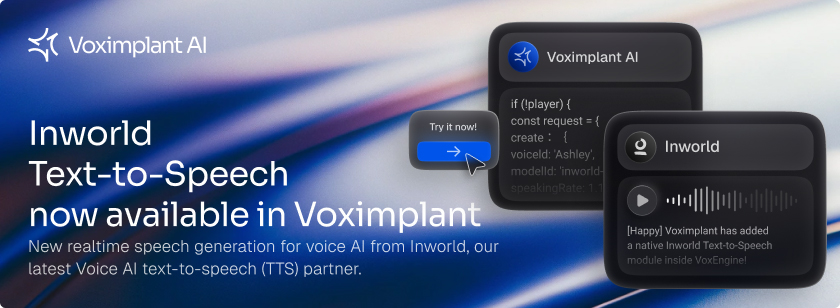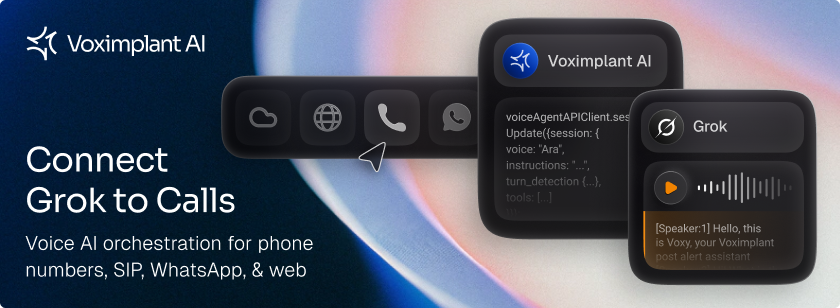It’s time to set the record straight about fixed vs non-fixed VoIP phone numbers. There is a lot of misinformation on the web about the ten digits we rely on to connect people and businesses on the public switched telephone network (PSTN). The false claims and hyperbole are sowing fear, uncertainty, and doubt about the functioning of vital communications services.
This blog will put to rest much of the FUD about fixed and non-fixed VoIP phone numbers. In particular, we’ll explain why non-fixed VoIP numbers are perfectly safe to use for developers, businesses, and consumers. Even though this post focuses on North America, most of the concepts apply to the global phone network.
Changes to the phone number system
Why are we even having this conversation? Because the phone number system we use in North America has undergone some necessary changes since it was originally developed in 1947. In fact, that we still use the familiar ten-digit format is a testament to ingenuity. Since it was developed, the underlying network has undergone multiple complete technology evolutions, regulations have changed to foster competition, and the businesses that operate the network are constantly changing.
The U.S. Telecommunications Act of 1996 paved the way for fixed and non-fixed VoIP phone numbers. Among many significant changes, the Act provides for phone number portability between service providers which changed the function of the phone number.
Anatomy of a phone number
All consumers and businesses are familiar with the format established by the North American Numbering Plan. This geographically hierarchical format combines numbering plan areas (NPA), central office codes (NXX), and station numbers (XXXX) to form a unique 10-digit phone number, NPA-NXX-XXXX. The plan was originally designed by AT&T Bell Labs to enable call routing between physical locations served by regional switching centers on the PSTN.

However, phone number portability changed all this. Phone numbers are now virtual addresses. Their relationship to a physical location is based solely on convention.
Today, calls are routed on the PSTN using a type of phone number alias called the Location Routing Number (LRN), which coincidentally is a ten-digit number. The LRN identifies the carrier responsible for connecting a destination number to the PSTN. The relationship between phone number and LRN is stored in a common routing database that is accessed by all carriers. When a call is placed, the originating carrier accesses the database to determine how to route the call to its destination.
Benefits of phone number virtualization
Phone number virtualization has been a boon to the telecommunications industry. It enables landline and wireless carriers to compete for customers on a level playing field and it is fundamental to the emergence of VoIP services, which can be delivered by service providers with neither landline nor wireless facilities.
Providers have leveraged virtualization to deliver a range of innovative services:
- Local presence - Because NPA (and NXX to a lesser degree) retain their historical association with a geographic area, providers can offer “local” numbers to businesses for the locality they wish to serve without regard to their physical presence
- Dynamic routing - Never miss a call by redirecting them to alternate numbers and locations
- Device independence - Receive calls on any endpoint device (PC, smartphone, etc.
- Speed and agility - Virtualization has dramatically accelerated phone number provisioning
You may ask, “If phone numbers have been virtualized, then what distinguishes one number from another?”
Very little!
Bloggers are exaggerating a very minor and inconsequential difference.
What are fixed VoIP phone numbers?
Some early VoIP service providers in North America established account activation procedures much like landline providers and required their customers to register a physical address corresponding with an assigned phone number. The address could be the user’s permanent location or a billing address. Government regulation requires this registration information in some countries, including Germany. However, not the US. In fact, it is no longer common practice for US-based VoIP providers to capture a physical address.
The physical address requirement places no restrictions on user mobility, which is a primary VoIP service benefit. Users can connect to a fixed VoIP service from any geographic location and access the provider’s services.
Note, the physical addresses service providers use in North American emergency services (e911) are not connected to the definition of fixed VoIP phone numbers. Service providers that offer e911 support manage a separate, dedicated physical location database for e911 calls. This is because e911 calls are routed to public safety answering points (PSAP) differently than normal PSTN calls, giving service providers the ability to deliver very specific, granular location information. For example, the e911 database for a sprawling headquarters location might include floor and office numbers corresponding with each phone number served by the building’s SIP trunk.
A Google search for “fixed VoIP phone number service provider” reveals only one provider promoting this feature, Ooma.
Are there advantages to fixed VoIP phone numbers?
Bloggers would have you believe services offered by fixed VoIP number providers are more reputable. They say spammers and fraudsters are not likely to use a service that requires its users to register a physical address. However, there is nothing to prevent these bad actors from registering with a bogus address.
What’s more important: Calls originated by fixed VoIP numbers are delivered to their destination the same as non-fixed VoIP numbers. The PSTN does not discriminate between fixed and non-fixed VoIP numbers. Said another way: The users of fixed and non-fixed VoIP numbers receive identical services from the PSTN.
What are non-fixed VoIP phone numbers?
As you may have already guessed, non-fixed VoIP phone numbers can be provisioned for customers without registering a physical address. As mentioned earlier, this service may not be available in some countries because of regulation. Outside of these countries, non-fixed VoIP number services are more frequently used.
Aside from Ooma, VoIP service providers don’t promote their service as either fixed or non-fixed. But the fact is, most don’t require customers to register a physical address. If an address is requested, it is only for their credit card authentication process. For example, consumer VoIP powerhouse Google Voice doesn’t require an address and small business provider Grasshopper requests an address only for credit card processing.
Note that non-fixed VoIP numbers, as defined by bloggers, are not the same as the mobile/wireless numbers assigned by cellular service providers. Bloggers are strictly focused on the numbers administered by VoIP providers. They say some VoIP numbers are non-fixed because there is no physical address associated with the account, not because users are mobile. We agree mobility is an inherent VoIP feature, enabling users to access the PSTN anywhere internet service is available.
What’s wrong with non-fixed VoIP phone numbers?
Bloggers say the service offered by these providers attracts bad actors. But this is not correct. Fraudsters and spammers are not impeded by address requirements because they are easy to defeat. They can sign-up for paid services using a prepaid card and a bogus address.
There is nothing inherently deficient in a VoIP service offered by a provider that isn’t interested in your physical address. Calls are routed by the PSTN without regard to whether a physical address is or is not associated with your account. Except for e911 services mentioned earlier, the features offered by a provider, like voice mail, call forwarding, conferencing, custom greetings, incoming call handling, and much more are available through fixed and non-fixed VoIP number services, alike.
Fraud has nothing to do with fixed or non-fixed VoIP numbers
Fraud and telephony spam are enabled by the same factors that attract ethical consumer and business customers to VoIP services: Low cost; fast provisioning (service can be activated in seconds); easy credit card payment; and ubiquitous global access via the internet. These are characteristics of both fixed and non-fixed VoIP numbers. The VoIP phone number type, as defined by bloggers, has no bearing on criminal activity.
Bad actors set up shop, make bulk calls in rapid succession, and move-on when the VoIP provider catches on to them. They purchase services with a prepaid card and provide a bogus address for card authentication.
App developers need to be aware of fraud and spam activities because the phone numbers they purchase may be recycled from a nefarious user. Unless you port your own phone number, you may purchase a number from a VoIP service provider that was previously used in criminal activity. We recommend you ask your provider about their phone number cleansing protocols.

Fixed vs. non-fixed VoIP phone numbers - it’s all FUD
The distinction bloggers are making between fixed and non-fixed VoIP phone numbers is tenuous, at best. You won’t see a menu option that lets you select between fixed and non-fixed VoIP anywhere. Furthermore, it’s nearly impossible to select a service provider based on the phone number types defined by bloggers. There is no authoritative third party listing of providers by number type.
Moreover, there is no inherent difference in the services offered by providers based on phone number types. Service quality, features, prices, and support for e911 services are not affected by the physical address captured on a customer service record or payment authorization screen.
You should not be distracted by the FUD being spread by bloggers. Fixed and non-fixed phone numbers are a red herring. The truth is both types of service provide great solutions for application developers.





